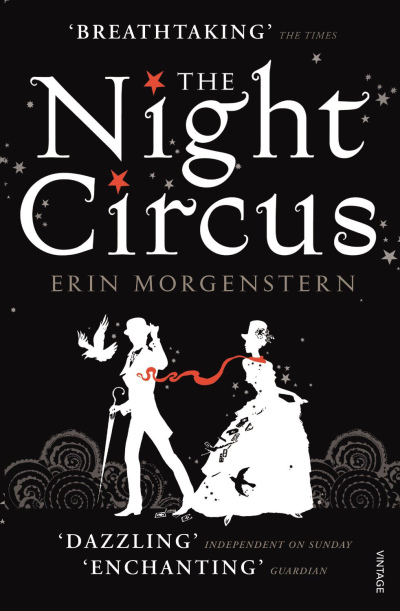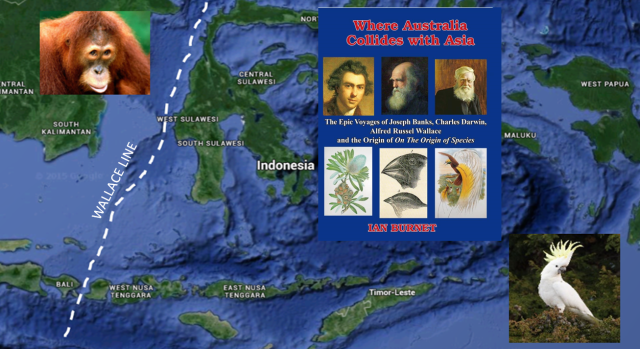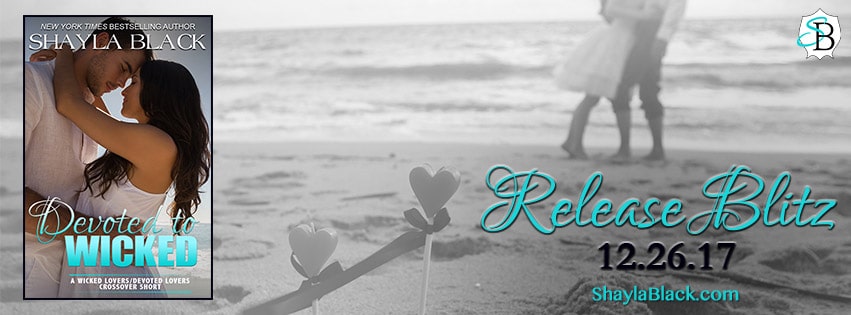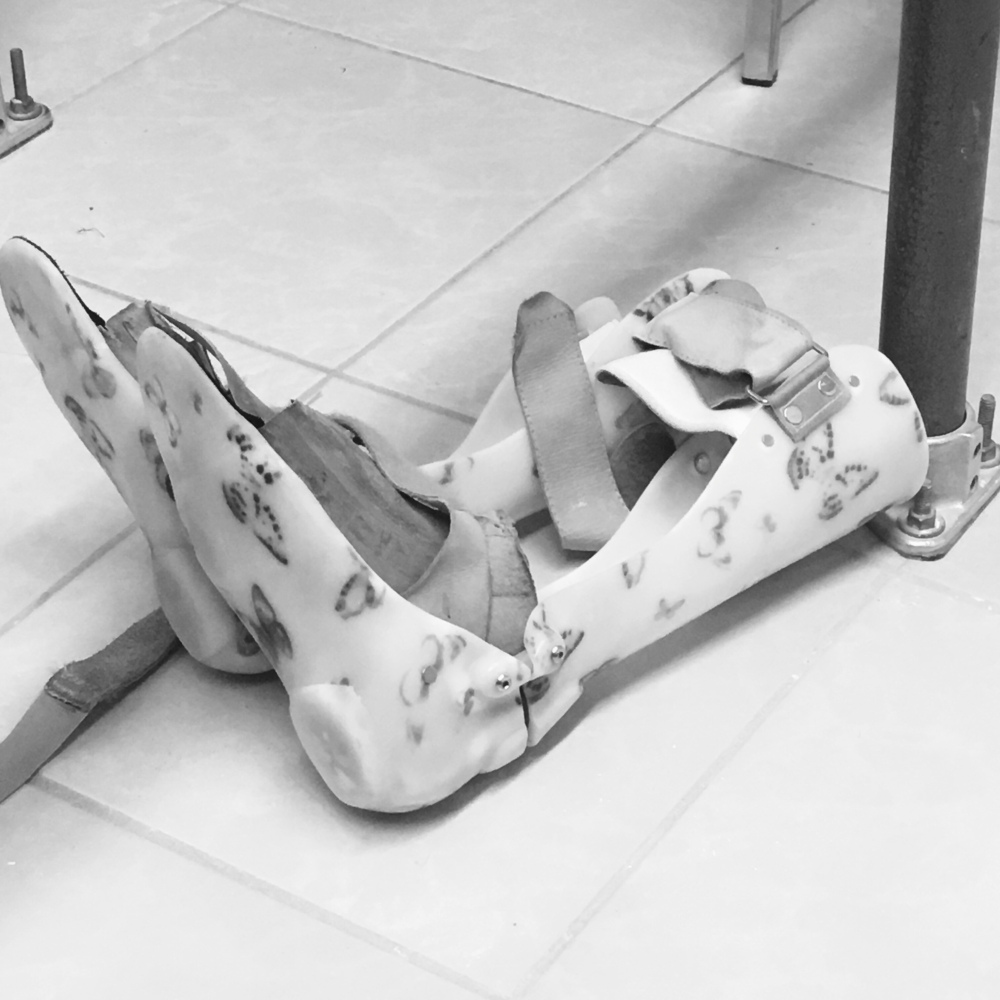*I received an arc via the publisher in return for an honest review*
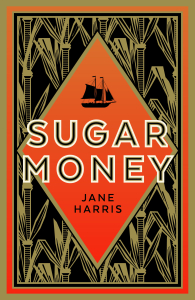
Sugar Money by Jane Harris
Synopsis:
Martinique, 1765, and brothers Emile and Lucien are charged by their French master, Father Cleophas, with a mission. They must return to Grenada, the island they once called home, and smuggle back the 42 slaves claimed by English invaders at the hospital plantation in Fort Royal. While Lucien, barely in his teens, sees the trip as a great adventure, the older and worldlier Emile has no illusions about the dangers they will face. But with no choice other than to obey Cleophas – and sensing the possibility, however remote, of finding his first love Celeste – he sets out with his brother on this ‘reckless venture’.
With great characters, a superb narrative set up, and language that is witty, bawdy and thrillingly alive, Sugar Money is a novel to treasure.
My review:
“Cane is sugar, sugar is money” Emile
This novel is almost like three separate novels in one! It is a sensational story of a brave adventure. Yet there are obviously added dark elements, due to the slavery theme. It is also a story of the bonds of brotherhood and love. It really will pull at your heart strings and you will root for brothers Lucien and Emile, with love and hope on every page!
Firstly, to start my review, I should say this is a beautiful book cover. The maps on the inside of the cover, give it the piracy and adventure feel. I am really glad I own a physical copy! I should also mention that this novel is based around a true story.
The novel opens in St Pierre, Martinique, Western Antilles. In December 1765, the location and era is fully explored throughout the novel. The novel is told from the narrative of slave Lucien. He is summoned to the morgue by his master Father Cleophas. His master is content with hacking at the innards, of a dead field hands corpse. His older brother Emile is present and they are both unsure as to why. Lucien being the younger brother at just approximately 15 years old and Emile being approximately 30 years old. Their story of their ancestry and brotherhood, makes for quite the dark tale.
Father Clophas gives them a long winded explanation of how he wants them to return to Grenada and bring back 42 slaves. He informs them how badly the English treat the slaves and that they are, his rightful property. They will be joined by a Spanish skipper named Captain Bianco, who is a deaf mute. The master is clever in how he lures the men into the mission. As he suggests that Emile will be reunited with lost love Celeste and that they may grow into old age together upon returning. There is some squabbling amongst the brothers and we learn Emile doesn’t wish for Lucien to sail. Father Cleophas is adamant that they must work together as Emile is more cunning, but Lucien speaks the necessary English for the journey.
Never the less they sail on the morrow…………
“Listen, Lucien. This is no adventure, nor a child game. Sometimes, I wonder if you still have the sense you came born with” Emile
Throughout the sailing, between Lucien’s thoughts and the brother’s conversation. We learn of life with the Fathers and monks. We also learn the dark secret of their parentage, which is shocking. Lucien is wary of the risk they will take on their vessel ‘The Daisy’. Emile formalises the plan, they must speak to the slaves at night, under the cover of darkness. He is well aware of what will become of them, if they fail this mission. Whilst Lucien dreams of killing the skipper and sailing to Africa. Neither man is quite prepared for what they will experience on this journey.
“No real harm could come to us while we were together” Lucien
“I knew that nobody could break the bond of blood – good and bad- between us” Lucien
The memories and conversations between the men about Celeste, are fascinating. We learn she means quite a lot to both men. Having raised Lucien and being Emile’s sole love interest. I could not what to find out what had become of her in the seven years apart. The journey, is insightful into the character development and I really liked both Lucien and Emile immensely.
When they arrive at the island, they are reunited with some close friends and family. However, they also learn the fate of some and it does not make for easy reading. They learn of the punishments inflicted upon the slave. They are methodical, barbaric and designed to break the will of the slave. The pass a man naked, bones visible he is so starved. The man has a vacant expression, he is shackled with his ear nailed to the hut and has an ointment on to attract flies to bite him. You could imagine the sheer despair of the mind, at being forced to endure such a torturous punishment.
This novel by no means, down plays slavery. The degradation, brutality and dehumanisation is fully explored. Exactly in my opinion, as it should be. Any novel that is written about slavery has a duty for it to be as an accurate portrayal as possible. I would say I found this similar in one sense to the violence portrayed in The Book Of Night Women by Marlon James. Another author, not afraid to depict slavery honestly. There is a part where you will learn the story of Marital Medicine. It is possibly one of the darkest things I have ever read. I was completely taken aback, with the levels of depravity slavery had.
The men are reunited with friends including Angelique, Leotine, Therese, Lejeune and finally Celeste. But when their eyes meet Celeste they are left shocked to their core……… They are warned of a dangerous drunken overseer named Addison Bell.
A man so insanely violent, he is feared by all…..
“English been working us to death” – Angelquie
“He could…. It could get us all killed” – Celeste
The brothers get world out amongst the slave and begin to build a plan of the escape. This is no easy adventure and capture could be fatal. The novel continues at fast pace and you are left on the edge of your seat. I was genuinely trying to read as fast as I could. So that I could learn what will become of all the slaves including Lucien and Emile. It builds and builds, to an exceptionally emotional ending. I was left reeling and tearful at the same time. There is a note from the editor and an afterword by the author, which serve to add more depth to the characters, long after the novel is finished!
A fantastic historical adventure story, that details the colonial history and pulls at the heart and soul.
5*
“What I saw can never be unseen, never forgotten. All my life, over and over again, that same scene repeating in my mind” – Lucien
Q&A:
Q) Due to the author’s note and details at the end of the novel, I am aware of the inspiration for the novel. But for the readers, can you enlighten them on the true story and how you came across it?
A) I first came across the true story in a history book about the island of Grenada in the Caribbean. The events were described in just a few paragraphs. Basically, a group of French monks in Martinique hired a man (described only as ‘a mulatto slave’ in the original sources) and ordered him to ‘recover’ some slaves from Grenada where the monks had, until recently, managed a hospital and plantation. Although the British had since seized control of Grenada and the hospital estate, the monks maintained that the enslaved people there still belonged to them.
In essence, they ordered this poor man to steal the slaves from under the noses of the enemy. I was shocked that such a thing could have happened and fascinated by the courage of this man – the ‘mulatto’ – at the centre of the story. He became the character of Emile in Sugar Money.
Q) Can you tell us about yourself and your writing career?
A)I didn’t start writing until I was about 30 years old and by then I’d had a number of careers, as a singer and performer, in administration and management, and so on. At one point, I set off to work my way around the world but only got as far as Portugal and that’s where I began to write short stories, while I was waiting to begin work as a teacher at a language school. Very quickly, I knew that fiction-writing was what I wanted to do, so I gave up my teaching job and returned to Britain to try and get the stories published. Fortunately for me, various Scottish literary magazines and anthologies accepted my first efforts.
For several years thereafter, I continued working in various menial jobs while publishing stories here and there. I also undertook a Creative Writing MA and a PhD, and then worked for film companies as a script reader and editor.
After a short detour into writing for the screen, I returned to prose. One of my abandoned stories grew in length and finally became The Observations, my first novel. Thereafter, I wrote Gillespie and I, and it was while writing this second novel that I came across the historical event that would eventually become Sugar Money.
Q) Lucien and Emile have considerable depth as characters, their parentage, relationships with Celeste etc. How do the personalities form? Is it as you write? Do you plan them out?
A)Thank you for your kind words about character! I do try to put a lot into my character work. In the research stage, I write character notes and biographies, family trees and so on, in order to get a general idea of what the characters are like. I often take elements from my own character and from people I know or have met. Developing the voice of the narrator also helps me get to know the protagonist.
In this case, the sibling rivalry between Lucien and Emile was important in defining their personalities, as was how they, as individuals, relate to Emile’s first love, Celeste. This triangular relationship is at the heart of the novel, and my aim was to use these more intimate character motivations to add depth and warmth to the ‘bigger picture’ and the weightier themes of slavery, freedom, justice, escape and so on.
Q) The novel has very graphic portrayals of the brutality and violence of slavery. Which I personally, think is important to cover in a novel with a slavery theme. In particular, the story of Martial Medicine, is exceptionally brutal. Is this difficult to write? and did you have to research into slavery punishments?
A) I did carry out extensive research into all aspects of slavery, particularly as it operated in the Caribbean. Everything in the novel, in terms of punishment, is taken from original sources. For instance, what I call “Martial Medicine” is adapted from something known as “Derby’s Dose” as described in the diaries of Thomas Thistlewood, an overseer and slave-owner in Jamaica, who was breathtakingly frank about his horrific treatment of enslaved people. Without giving too much away, I did find parts of the story difficult to write and – at times, in the process – I became quite depressed.
Q) The ending left me broken, yet there are so many themes of love and hope within the story. Which makes it tough to review. I have done my best to get across to blog readers the various themes etc. How would you describe the novel?
A) I think fellow novelist Amanda Craig summed it up well when she said that Sugar Money is ‘a tale of slavery and freedom, innocence and experience, love and despair.’ That’s what I wanted it to be from the start, and I really hope that I’ve gone some way towards achieving that.
Q) I get the sense this novel would have been a huge project and dominated a large amount of your time. How do you celebrate upon a novel’s completion?
A) This might sound daft, but I don’t celebrate completion until, perhaps, the launch of a book, because there never seems a moment when it’s actually finished. Even once you write “The End” you know there will be endless revisions to be done before submitting to your agent and publisher, then further revisions, then proofing, and finding the right cover, responding to publicity requests and so on. Also, I’m a bit superstitious about celebrating anything too early. However, no doubt, I will be raising a glass of something on the night of publication!
Q) Finally, do you have another project lined up and can we have any snippets of information?
A) I do have a couple of ideas but I’ve been so busy with moving home and various other chores that I haven’t had time to really pin down what exactly I’m going to do next. Every time I finish a book, I always say I’m not going to write another historical novel – but let’s see!
*Huge thanks for being part of a Q&A on my blog and I wish you every success with the release of your novel.
JH:Many thanks for inviting me to respond and thanks so much for your interesting questions!
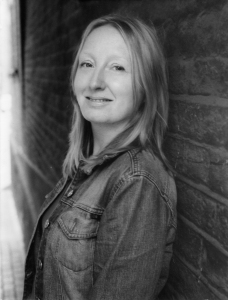
Jane Harris
Authors links:
My website is at www.janeharris.com
My Twitter name is @blablafishcakes
My Facebook Author Page is at: https://www.facebook.com/Author-Jane-Harris-140719536001399/
Share this:


